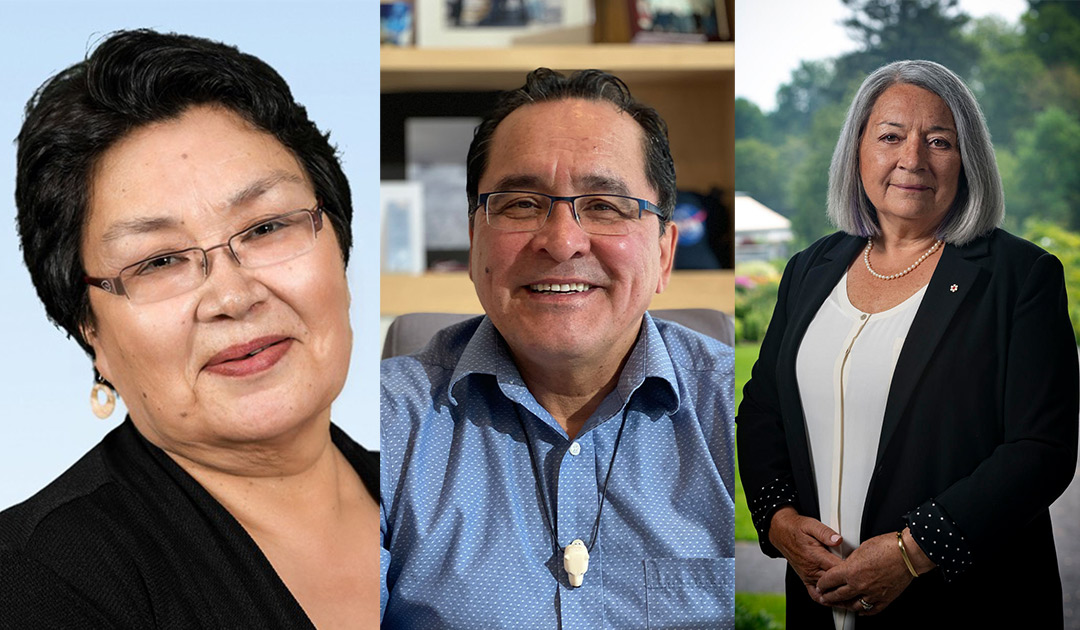
“Today is an important day, a day where we remember those whom we’ve lost. It is a day to honour the residential school survivors, their families, and our communities, and a day where we’re reminded that we need to continue to advocate for justice and for the rights of Inuit.”
Rebecca Kudloo, president of the Pauktuutit Inuit Women of Canada organization.
Canada celebrates the first ever National Day for Truth and Reconciliation – a day of remembrance dedicated to Canada’s Indigenous peoples, Inuit, First Nations and Métis, as a step on the road to healing after decades of horrific mental and physical violence against their children in Canada’s Indian residential schools.
Between 1831 and 1998, 140 government-funded Indian Residential Schools existed in Canada, established to isolate indigenous children from their parents and thus from their language, culture, and religion, and to assimilate and integrate them into Canadian culture. During the years from 1894 to 1947, attendance at these schools was mandatory. The mandate to run the schools was given primarily to the churches (Catholic, Anglican, Presbyterian, Methodist, and others).
Over the 167-year history of residential schools, approximately 150,000 indigenous children have been taken from their families and placed in distant residential schools. In addition to the trauma of being separated from their families and culture, many of the children were subjected to physical and sexual abuse. In addition, due to tuberculosis and inadequate hygiene measures, there have been at least 3,201 deaths among the children, and possibly more than 6,000, according to the Truth and Reconciliation Commission. The true number will likely never be determined, as the schools’ cemeteries are unmarked or have been intentionally hidden or built over. In May and June of this year, remains of more than 1,100 children were found buried in unmarked graves in British Columbia and Saskatchewan.

Survivors long fought for recognition and reparations and demanded accountability for the lasting legacy of the suffering inflicted. The first apologies for the atrocities were made by the United Church of Canada in 1986. It was not until more than 20 years later, in 2008, that the Canadian federal government also apologized to Indigenous delegates. That same year, the Truth and Reconciliation Commission was established to collect the stories of some 7,000 Indigenous people. In its final report in 2015, the commission presented 94 calls to action, including the establishment of a National Day for Truth and Reconciliation, which is being celebrated for the first time today. Not coincidentally, the day falls on the same day as the public holiday Orange Shirt Day, which refers to the experience of Phyllis Webstad (Northern Secwpemc), who had her new orange shirt taken away on her first day of school in 1973.
In addition, the National Centre for Truth and Reconciliation was established, which has become the permanent archive for the testimonies, documents and other materials collected by the Commission.
“My message when I speak to government is always the same, Inuit don’t want any more than their fellow Canadians, we just want equity.”
Pita Aatami, the president of the Makivik Corporation, the Inuit land claims organization in Quebec.
Today’s commemoration calls on all Canadians, Indigenous and non-Indigenous, to reflect on the historical legacy and still-present consequences of residential schools in order to advance reconciliation. Rebecca Kudloo says in a statement, “Reconciliation is a path that requires all Canadians to work together and recognize the history of injustice against Inuit, but also acknowledge the achievements and contributions of our people. We encourage non-Indigenous Canadians to join us on this path of truth and reconciliation.” Kudloo invites participation in Inuit, First Nations and Métis celebrations, listening to the history and worldview of Inuit elders, and learning from and about Inuit, our culture, our past, our story. She also calls for a safe environment that welcomes all Indigenous peoples.

The National Day for Truth and Reconciliation is just one of many steps that lie ahead on the road to reconciliation. Pita Aatami, president of the Makivik Corporation, the Inuit land claims organization in Quebec, told Eye on the Arctic, “This day that is given to Aboriginal people of this country is very much appreciated but it does not solve all our problems and the upheaval that Inuit had to go through because somebody else decided to come to our part of the world and take over our lives. We still have a lot of healing to do with our fellow Canadians.”
To this day, the terrible consequences of colonial rule, and specifically the Indian Residential School System, continue to reverberate. Residential school survivors and their families suffer from historical trauma that has had a lasting impact on the transmission of indigenous culture for generations. Sexual abuse, alcoholism, drug addiction, mental illness, and suicide remain prevalent among Inuit and other indigenous peoples.
Inuit women, in particular, are among the most vulnerable populations, according to Kudloo, as they face not only the consequences of colonization but also gender-based violence and inequality, so their path to reconciliation can be more difficult.
“Reconciliation is a way of life, continuous, with no end date. It is learning from our lived experiences and understanding one another. It is creating the necessary space for us to heal. It is planting seeds of hope and respect so that our garden blooms for our children.”
Governor General Mary Simon, Canada’s first Indigenous Governor General.
Across Canada today, numerous events are taking place such as powwows, lighting of sacred fires, talks by elders, workshops, feasts and more, with all Canadians encouraged to wear orange. In Iqaluit, Nunavut, for example, there will be a walk after a moment of silence, organized by the Qikiqtani Inuit Association and Nunavut Tunngavik Incorporated. In addition, public buildings in Canada will be illuminated in orange lights.
Julia Hager, PolarJournal





